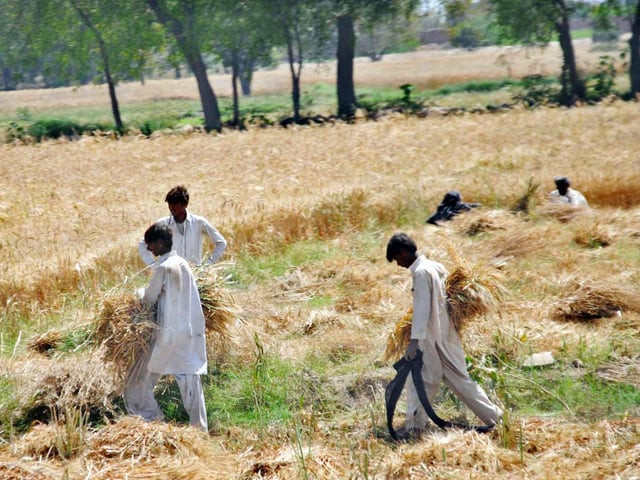Grow or go, landlords tell tillers
Bhutta said that landlords came to the tent cities to inform marooned tenants of the one-month deadline.

“We have already paid them [the landlords] the lease amount for the next crop and now, at a time of calamity, we are being forced to leave the land,” said Tariq Bhutta, who cultivates 25 acres of land, all of which were affected by the floods. Bhutta, who is living in a relief camp, said that landlords came to the tent cities to inform marooned tenants of the one-month deadline.
According to the district administration, around 519,645 acres of land, including agricultural land, were affected in the floods. So far, over 700 villages have been affected and 18 people have died.
Malik Zubari Khan, who has given 300 acres of his land on lease in Muzaffargarh district, is one of the landlords who went to a camp to tell the tillers about the deadline.
“The district’s fertile land lies between two rivers – Chenab and Indus – and the floods caused by a surge in the rivers have damaged the fertility of the lands. Our lands might become barren,” he justified. When pointed out that he was legally bound to not remove his tillers until April 2011, he said that he was willing to violate the law if that was what it would take to protect his cultivated lands from becoming barren.
Khan, however, refused to return the lease amount that the tillers had paid him in April 2010. “They have to grow the wheat crop within one month, after which the cultivation season will be over,” he said.
Malik Khizer Abbas, a landlord from Budh village, has lost 100 acres of land that he used to cultivate himself. “Both tillers and landlords have been affected by the floods. The tillers cannot grow their wheat crop this season as the lands are still under five-feet of water,” he said.
Abbas, whose livelihood depended completely on his lands, said that he would now have to control his consumption and that the floods had disrupted all his plans for his and his family’s life. “I fear that once the water recedes, all my cultivated land will become barren. Raging torrents might make the land infertile as stagnant water has created craters in the land and deposited a lot of sand at some points,” he said.
Qadir Baksh, another tiller in a relief camp in Muzaffargarh, dared to argue with his landlord. “I had cultivated my cotton crop, which has been inundated. For my wheat crop, I have already paid a lease amount to the landlord. Now, because of stagnant flood water, I cannot grow wheat and neither can I quit the land,” he said.
Published in The Express Tribune, August 20th, 2010.



















COMMENTS
Comments are moderated and generally will be posted if they are on-topic and not abusive.
For more information, please see our Comments FAQ